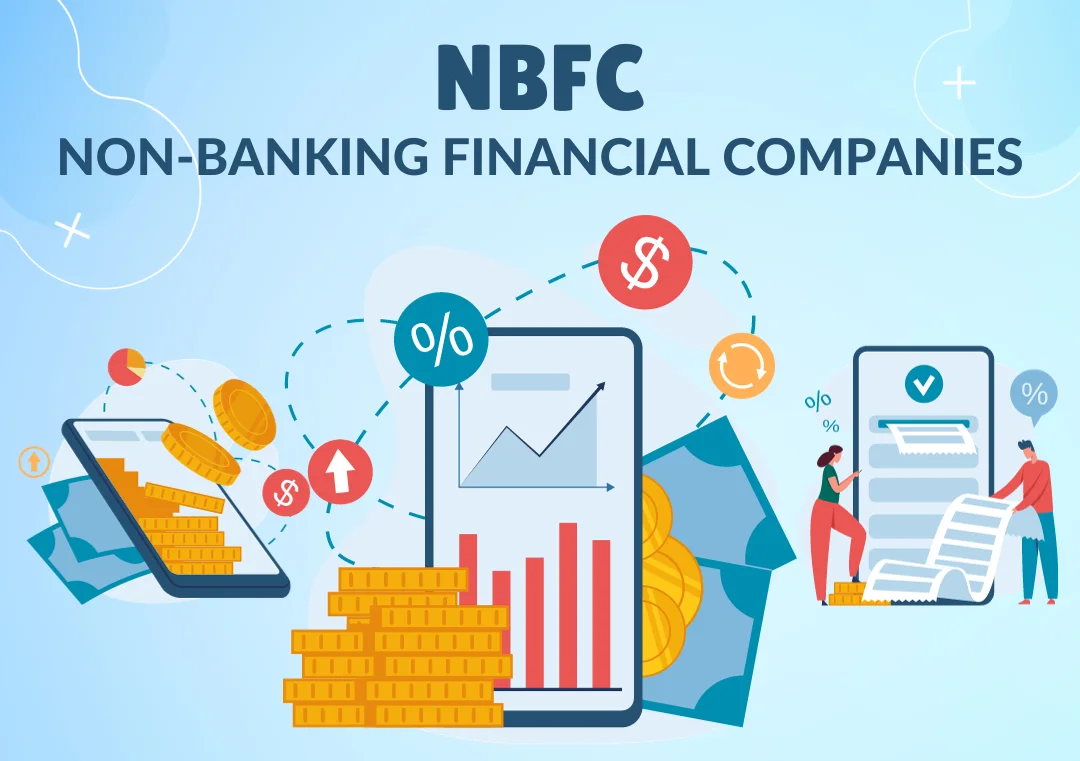Compliance for Non-Banking Financial Companies (NBFCs) in India is governed by the Reserve Bank of India (RBI) under the framework provided by the Reserve Bank of India Act, 1934, and the regulations and guidelines issued by the RBI from time to time. Here’s an overview of key compliances that NBFCs are required to adhere to:
Regulatory Registration and Approval
1. Certificate of Registration (CoR)
- NBFCs must obtain a CoR from the RBI to operate as an NBFC.
- Different categories of NBFCs (Asset Finance Company, Loan Company, etc.) have specific registration requirements.
2. Change in Management or Control
- Prior approval from the RBI is required for any change in management or control of the NBFC.
Prudential Norms and Regulations
1. Capital Adequacy
- NBFCs must maintain a minimum level of capital based on their risk-weighted assets, as per RBI guidelines.
- Capital adequacy ratio (CAR) norms must be adhered to at all times.
2. Asset Classification and Provisioning
- NBFCs must classify their assets into standard assets, sub-standard assets, doubtful assets, and loss assets based on predefined criteria.
- Provisioning norms require NBFCs to set aside funds as provisions for expected credit losses.
3. Liquidity Management
- NBFCs must maintain a minimum level of liquid assets to meet their short-term obligations.
- They are required to submit periodic liquidity statements to the RBI.
Operational Guidelines
1. Fair Practices Code
- NBFCs must adhere to a Fair Practices Code (FPC) in their dealings with customers, ensuring transparency, fairness, and protection of customer interests.
2. Risk Management Framework
- NBFCs are required to have a robust risk management framework covering credit risk, market risk, liquidity risk, operational risk, and other relevant risks.
- Regular risk assessments and mitigation strategies must be implemented and reported to the RBI.
Regulatory Reporting and Disclosures
1. Financial Statements
- NBFCs must prepare and submit periodic financial statements, including balance sheets, profit and loss accounts, and cash flow statements, to the RBI.
2. Annual Audits
- NBFCs are required to conduct annual audits of their financial statements by a qualified auditor and submit the audit report to the RBI.
3. Statutory Returns
- NBFCs must submit various statutory returns and reports to the RBI on a periodic basis, including information on capital adequacy, asset quality, liquidity, and operations.
Customer Protection and Conduct
- Know Your Customer (KYC):
- NBFCs must adhere to KYC norms while onboarding customers, verifying identities, and maintaining customer records.
- Complaints Redressal:
- NBFCs must have a robust grievance redressal mechanism in place to address customer complaints promptly and fairly.
Compliance with Other Regulations
- Income Tax Act and GST:
- NBFCs must comply with taxation regulations, including filing of income tax returns, TDS payments, and GST compliance where applicable.
- Other Regulatory Guidelines:
- NBFCs must comply with other regulatory guidelines issued by the RBI, such as guidelines on corporate governance, internal controls, outsourcing of services, etc.
Corporate Governance
1. Board Composition and Functions
- NBFCs must comply with corporate governance norms, including board composition, functions, committees, and disclosures.
2. Internal Controls and Audit
- NBFCs are required to maintain adequate internal controls and conduct internal audits to ensure compliance with regulatory requirements and operational efficiency.
Compliance with regulatory requirements is crucial for NBFCs to operate legally, maintain financial stability, and protect the interests of stakeholders. Adherence to RBI guidelines ensures that NBFCs maintain high standards of governance, risk management, and customer protection while contributing to the stability and growth of the financial system. Staying updated with regulatory changes and promptly implementing necessary measures is essential for NBFCs to thrive in a regulated environment.
At Ujjwal Gupta & Co
We, at Ujjwal Gupta & Co, are dedicated to delivering personalized, high-quality solutions tailored to meet your financial and business needs. With our team of professionals and a client-first approach, we ensure that every challenge is met with expert guidance and strategic insight.
We are dedicated to ensuring your business’s success by providing best service practice available in the industry and that too at a cost effective pricing. Our team of experts is excited to work with you and provide the support you need to thrive in the Indian business landscape.
Our only motive is to create Value for Our Clients and accordingly, have a Client Value System at our Office.
So, let us help you navigate the complexities of finance and compliance, empowering you to focus on what matters most — growing your business. Get in touch today, and take the first step towards financial peace of mind.
NBFCs must comply with various statutory and regulatory requirements, including:
- Filing periodic returns with the RBI (e.g., DNBS-02, DNBS-10, and DNBS-13).
- Maintaining a minimum capital adequacy ratio (CAR).
- Adhering to KYC and anti-money laundering (AML) norms.
- Following fair practices codes for lending.
- Conducting statutory and internal audits.
NBFCs must maintain a minimum CAR of 15% (as per RBI guidelines). This ensures the financial health of the NBFC by maintaining sufficient capital to cover its risk-weighted assets.
Some common returns NBFCs need to file include:
- DNBS 02: This return is filed quarterly by NBFCs that accept and hold deposits. It includes critical financial parameters and indicators. The NBFCs are required to file this return within 15 days of the end of each quarter. It provides important financial information to regulatory authorities.
- DNBS 10: The statutory auditor certificate (SAC) is an annual return filed by NBFCs. It should be filed within one month of finalizing the balance sheet. However, this return cannot be filed after December 31st of the relevant financial year. The return confirms the accuracy and completeness of the financial statements.
- DNBS 13: This return pertains to overseas investment details. NBFCs with overseas investments are required to file the DNBS 13 return every quarter. The filing deadline is 15 days after the end of each quarter. The return provides information on the NBFC’s investments made outside the country.
- CKYC Compliance Report: Related to customer KYC details.
- FC-GPR and FLA Returns: For NBFCs with foreign investments.
Deposit-taking NBFCs must:
- Maintain a minimum credit rating for accepting deposits.
- Ensure adherence to deposit caps and interest rate guidelines as per RBI norms.
- Provide periodic disclosures to customers and the RBI.
Yes, NBFCs must conduct the following audits:
- Statutory Audit: To review financial records and ensure accuracy.
- Internal Audit: To evaluate internal controls and processes.
- Concurrent Audit: In case of certain high-risk activities like lending or investments.
- RBI Audit: As mandated by the Reserve Bank of India for regulatory compliance.
NBFCs must follow strict KYC norms, including:
- Collecting and verifying identity and address proofs of customers.
- Reporting suspicious transactions to the Financial Intelligence Unit (FIU).
- Maintaining proper records of customer identification and transaction history.
Failure to comply with regulatory requirements can result in:
- Penalties or fines imposed by the RBI.
- Cancellation or suspension of the NBFC’s license.
- Legal action or sanctions for severe violations.
- Loss of credibility and customer trust.
The Board of Directors plays a key role by:
- Ensuring adherence to all RBI guidelines and legal requirements.
- Reviewing internal audit and compliance reports.
- Approving policies like fair practices code, risk management, and KYC policies.
- Overseeing corrective actions in case of non-compliance.
The Fair Practices Code (FPC) is mandated by the RBI to promote transparency and ethical practices. Key aspects include:
- Clear communication with borrowers regarding loan terms and conditions.
- Non-discriminatory lending practices.
- Addressing customer grievances effectively.
- Preventing coercive recovery methods.
Yes, NBFCs must establish a grievance redressal mechanism to address customer complaints promptly. This includes:
- Appointing a nodal officer for grievance redressal.
- Setting up a framework to resolve disputes within a specified timeline.
- Escalating unresolved complaints to the RBI’s Ombudsman Scheme for NBFCs.
Why Choose UGC?

Client Centric Approach
Client is the key driver of our service offerings. Our approach to service offerings is based on a client centric and customized approach. Our specialized teams are a mix of technical and industry experience in order to serve clientele for their specific needs.

Team Work
We have built high performing teams supported by strong work ethic. Our team is a mix of experts, professionals and support staff from technical and varied academic, social and ethnic backgrounds. We believe diversification plays a vital role in motivating the team.

Quick Turnaround
We always endeavour for a quick turnaround time to serve our clientele. We are supported by an experienced and client focussed support teams to offer timely services to our clientele. In case of any business exigencies and time sensitive service requirements, you can always count on us.

Open Communications
We believe that open communication is the core principle in order to demonstrate trust, build long lasting and valuable relationships with clientele. We are committed to ensuring transparency in communication, service offerings and delivery. We provide professional services to our clients.

Client Value System
We value for the Client time and thus, we offer services that are value for money. Quality professional services are provided to our clients, so that they are able to achieve their desired results. We are a quality trademark in the industry and thus, our clients count on us always.

Quality in Delivering Work
Our service offerings are driven by quality and reviews at every level. We strive to provide a qualitative and value-added delivery to our clientele. At all times, we endeavour to provide exceptional client service by meeting client expectations and driving client satisfaction.














